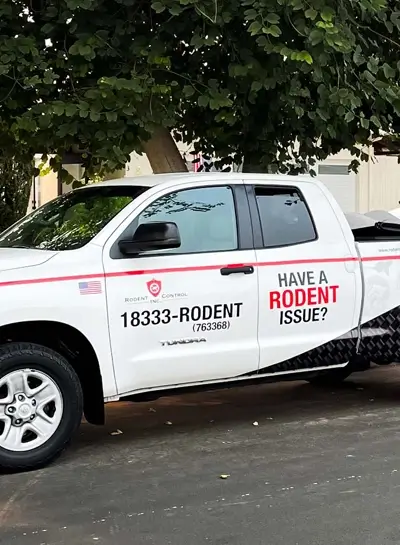Introduction
The presence of mice and rats in homes is more than just an inconvenience; it poses significant health risks to residents. Rodents are known carriers of a variety of diseases, and their droppings, urine, and saliva can contaminate food and surfaces. Understanding how to address these health concerns effectively is crucial for maintaining a safe living environment. This comprehensive article explores the various aspects of rodent infestations, offering insights on prevention, control measures, and how to choose the right Rodent Control Company for your needs.
Addressing Health Concerns Related to Mice and Rats in Homes
The Health Risks Posed by Rodents
Mice and rats are not just unsightly pests; they carry various pathogens that can lead to serious health issues. One of the most notable diseases associated with rodents is hantavirus pulmonary syndrome (HPS). Symptoms include fatigue, fever, muscle aches, and even respiratory distress in severe cases. Another https://storage.googleapis.com/rodentcontrolcompany/pest-control-service/5-signs-you-need-a-professional-rodent-control-company.html notable illness is leptospirosis, which can cause kidney damage and liver failure if left untreated.
Moreover, rodent droppings can harbor allergens that exacerbate asthma symptoms or cause other respiratory problems. The simple act of inhaling dust particles from contaminated areas can trigger allergic reactions or respiratory distress.
Common Diseases Transmitted by Mice and Rats
Hantavirus Pulmonary Syndrome (HPS)- Originates from deer mice. Symptoms: Fever, muscle aches, shortness of breath.
- Caused by water contaminated with rodent urine. Symptoms: High fever, chills, headache.
- Spread through food contaminated by rodent droppings. Symptoms: Diarrhea, fever, abdominal cramps.
- A viral infection spread by house mice. Symptoms: Fever, malaise, nausea.
- Transmitted through bites or scratches from infected rodents. Symptoms: Fever, rash.
How Rodents Contaminate Food Supplies
Rodents have a habit of gnawing through packaging materials such as cardboard or plastic bags to access food. Once they enter food supplies, they leave behind droppings that can contaminate everything they touch. Even if you don’t see any signs of a mouse or rat in your pantry today, their presence may still pose a https://s3.us-east-1.amazonaws.com/rodentcontrolcompany/pest-control-service/how-landscaping-choices-can-attract-or-deter-pests.html risk due to contamination.
Preventive Measures for Food Safety
- Store food in airtight containers. Regularly clean pantry shelves. Dispose of spoiled food immediately.
Signs You May Have a Rodent Problem
If you're wondering whether you have rodents in your home or business premises, look out for these tell-tale signs:
Droppings: Check for small black pellets near food sources. Gnaw Marks: Look for bite marks on furniture or cables. Nests: Locate nests made from shredded paper or insulation. Noises: Listen for scratching sounds at night or early mornings.Importance of Early Detection
Detecting rodent infestations early can save you time and money while significantly reducing health risks. If you notice any signs mentioned above, it’s essential to act quickly before the problem escalates.
Choosing the Right Rodent Control Company
What Should You Look For?
When selecting a Rodent Control Company, consider the following factors:
Experience: Look for companies with a proven track record in rodent control. Certifications: Ensure the company holds necessary licenses and certifications. Preventive Strategies: Ask about their preventive measures rather than just extermination techniques.Questions to Ask Your Potential Service Provider
Before committing to any service provider, ask these questions:
- What methods do you use for rodent control? Do you offer ongoing maintenance plans? Are your technicians certified?
The Role of Integrated Pest Management (IPM)
A reputable pest control company will often employ Integrated Pest Management (IPM). This approach combines multiple strategies—such as habitat modification and sanitation—alongside chemical treatments when necessary.
DIY Solutions vs Professional Help
When Can You Handle It Yourself?
If you notice only minor signs of rodent activity—like one or two droppings—you might be able to handle it yourself using traps or bait stations available at local stores.
When Should You Call Professionals?
However, if the infestation appears extensive or if there are health concerns involved—like children or pets in the home—it’s wiser to call a professional service like Rodent Control Inc.
Safe Practices During Extermination
Understanding Rodenticides
Rodenticides are chemicals used to kill rodents but come with significant safety concerns—especially with children and pets around. Always consult professionals who understand safe application methods.
Protective Gear
If attempting DIY solutions:
- Wear gloves when setting traps or handling bait. Use masks to prevent inhalation of allergens from droppings.
FAQs About Rodents
1. How can I prevent rodents from entering my home?
Seal all entry points such as cracks around windows and doors using steel wool or caulk.
2. What should I do if I find mouse droppings?
Immediately clean up the area using gloves and disinfectants but avoid sweeping them up dry as this can release harmful particles into the air.
3. Can rodents cause structural damage?
Yes! Rodents chew through wires which can lead to electrical fires as well as damaging insulation materials causing higher energy bills.
4. Are there any natural deterrents against mice?
Peppermint oil is known as a natural deterrent; soaking cotton balls in it and placing them around entry points may help repel mice effectively.
5. How often should I inspect my home for signs of rodents?
Regular inspections every few months are advisable; however, seasonal changes warrant more frequent checks especially during fall when rodents seek warmth indoors.
6. What are some visible signs that indicate an infestation has worsened?
Increased droppings around food sources will often signal larger populations present within your dwelling space indicating immediate attention is required!
Conclusion
Addressing health concerns related to mice and rats in homes requires vigilance coupled with effective strategies tailored toward both prevention and control measures against these pesky intruders! From understanding potential health risks associated with infestations down through proper selection criteria when hiring professionals like your local Rodent Control Company, knowledge empowers homeowners allowing them safer environments free from unwelcome guests! Ensuring regular inspections combined with expert interventions guarantees peace-of-mind knowing you've tackled potential hazards head-on!



By being proactive about rodent control while remaining informed on best practices ensures not only enhanced safety but also protects your family’s wellbeing! Don’t hesitate—take action today against those furry foes lurking underfoot!